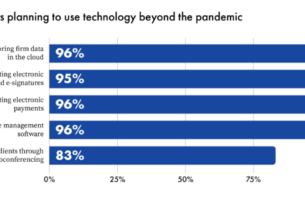Positioning itself as offering a simpler and more affordable AI-driven contract management system for mid-market corporate enterprises, startup Lexion has raised $11 million in an oversubscribed Series A round. When combined with its seed round of $4.2 million, total funding for the company is now $15.2 million.
The Seattle-based company says its product is intuitive and easy to deploy, while backed by cutting-edge natural language processing developed by a team with deep technical expertise in building sophisticated AI systems.
The funding round was led by Khosla Ventures of Menlo Park, Calif., with participation from existing investors Madrona Venture Group and law firm Wilson Sonsini. Khosla principal Kanu Gulati joins Lexion’s board.
Founded two years ago, Lexion is a relatively young startup in the hot CLM market, but it comes with some notable pedigree. It emerged out of the Allen Institute for AI, the AI research institute created by Microsoft cofounder Paul Allen, its new investor Khosla is a well-established Silicon Valley firm whose portfolio includes companies such as OpenAi, its existing investor Madrona helped launch Amazon, and its other investor Wilson Sonsini is known for not just representing tech pioneers, but also for its own tech initiatives, such as its tech subsidiary SixFifty.
In addition, in both 2020 and 2021, CB Insights named Lexion to its AI 100 list of the 100 most promising private AI companies in the world.
The Seattle based company plans to use these funds to scale go-to-market functions, drive further AI and product innovation, and grow its team.
Plans To Expand
The Lexion product is a repository that digitizes a company’s contracts to make it easier for them to find contracts, track contractual obligations, and create reports about what their contracts require.
Later this year, the company says, it will take a step towards a full end-to-end CLM product by rolling out a workflow module that will enable users to create customized intake forms, track the status of projects, manage drafts, secure approvals, and report on KPIs.
That is scheduled for full general availability in the third quarter of this year.
Gaurav Oberoi, cofounder and CEO, who, t0gether with cofounders Emad Elwany, now CTO, and James Baird, senior software engineer, developed Lexion while he was the first entrepreneur-in-residence at the Allen Institute, told me in an interview yesterday that the company’s focus on building a product that is simple and intuitive reflects its belief that CLM products are often overly complex.
He cited a Gartner study that found that legal departments realize only 30% of the potential benefit of their CLM investments because of the complexities of requirements gathering, change management, and user adoption.
His research also indicated that the high cost of many CLM products meant that many smaller legal departments were priced out of the market. “They’d say, ‘We’re not going to spend six figures for a legal team of five.’”
“A lot of contract management systems come in with a big-bang approach,” he said, but many companies aren’t mature enough for the processes they require.
“They’re putting a lot of requirements, gathering process management, change management into the mix. That’s what leads these things to fail.”
In the early stages of developing the product, Oberoi said, he knew he was onto something when Wilson Sonsini comparison-tested it against other CLM products and told him that it “blew away the competition. The firm not only became an investor in the company, but it is also a customer of the product.
Oberoi declined to say how many customers the company has, but he said that the company’s median customer has roughly 1,000 employees and a legal department of three to five lawyers, and extends down to companies with fewer than 100 employees and up to companies with more than 10,000.
The company has quadrupled revenue in the last six months, he said, and aims to triple them over the next year.
Vinod Khosla, founder of Khosla Ventures and formerly a cofounder of Sun Microsystems, said his firm invested in Lexion “because their team has the rare combination of deep technical expertise in building sophisticated AI systems, and a proven track record in delivering SaaS applications that solve real problems.
“This combination of cutting-edge technology, with simple and practical application, is exactly how the value of AI will get realized in corporations, and is why we think Lexion has a winning advantage in this space.”



